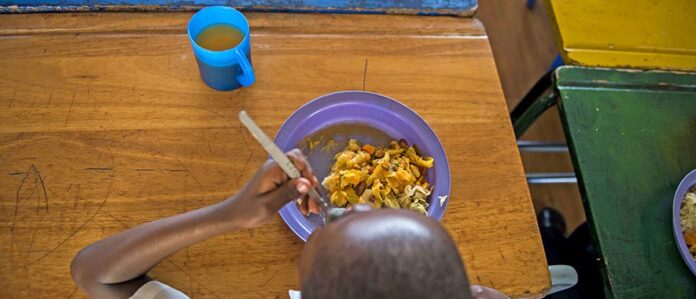More than 25% of Gauteng’s population does not have access to food in their homes, according to data, indicating that hunger and poverty are still major issues in the province.
The latest statistics by the Gauteng City Region Academy found that 26% of people go hungry and 12% of the population is food insecure.
Poverty levels are also rising, especially among women-headed households.
South Africa recorded 766 child deaths in 2024 due to malnutrition-related causes, according to Bridget Masango, the DA’s deputy spokesperson on social development.
“Deaths linked to moderate acute malnutrition were not even included in figures presented by the SAHRC [South African Human Rights Commission], meaning the true scale of this disaster is even greater,” said Masango.
Poverty on the rise
Teddy Gomba, the spokesperson for Gauteng’s social development MEC Faith Mazibuko, denied the DA’s claims that centralising food distribution is causing millions of children to suffer from malnutrition.
According to Gomba, poverty and the growing demand for food — rather than changes to the distribution of food parcels, as the DA claimed — are the root causes of these issues.
“This assertion is not only untrue, but it also falsifies provincial health department statistics about patients seeking treatment for malnutrition, which are still politically significant,” Gomba stated.
He clarified that the department received R332-million as opposed to R440-million the previous year, resulting in a R108-million shortfall, and that budget cuts have compelled operational adjustments.
As a result, adjustments were made to non-profit organisations (NPOs) dealing with HIV/Aids programmes.
Gomba said these changes will not affect the psychosocial services offered to orphans, vulnerable children, youth organisations, or home and community care centres.
Food distribution
“This follows advice from Gauteng social development MEC Faith Mazibuko that there must be no reduction in the number of NPOs funded in the sector and that there must be no job losses.
“The department will continue to pay salaries of social and auxiliary workers, community carers, and child and youth care workers who operate within the NPOs to provide psycho-social support services to vulnerable groups.”
Due to financial cuts, food parcels will now be distributed through the department’s sustainable livelihoods development directorate, which manages food distribution centres.
These centres, which are mostly run by NPOs, provide short-term food relief for vulnerable households.
“We urge NPOs handing over food parcels to the vulnerable in their communities to submit those lists to the department, as previously communicated.
“We are also working closely with the HIV/Aids NPO sector to ensure that all families in need of food are prioritised and continue to hold regular meetings with the HIV/Aids sector.
“Furthermore, the department is investigating the circumstances under which food ended up at a warehouse rented by an NPO that we are no longer funding,” he said.



